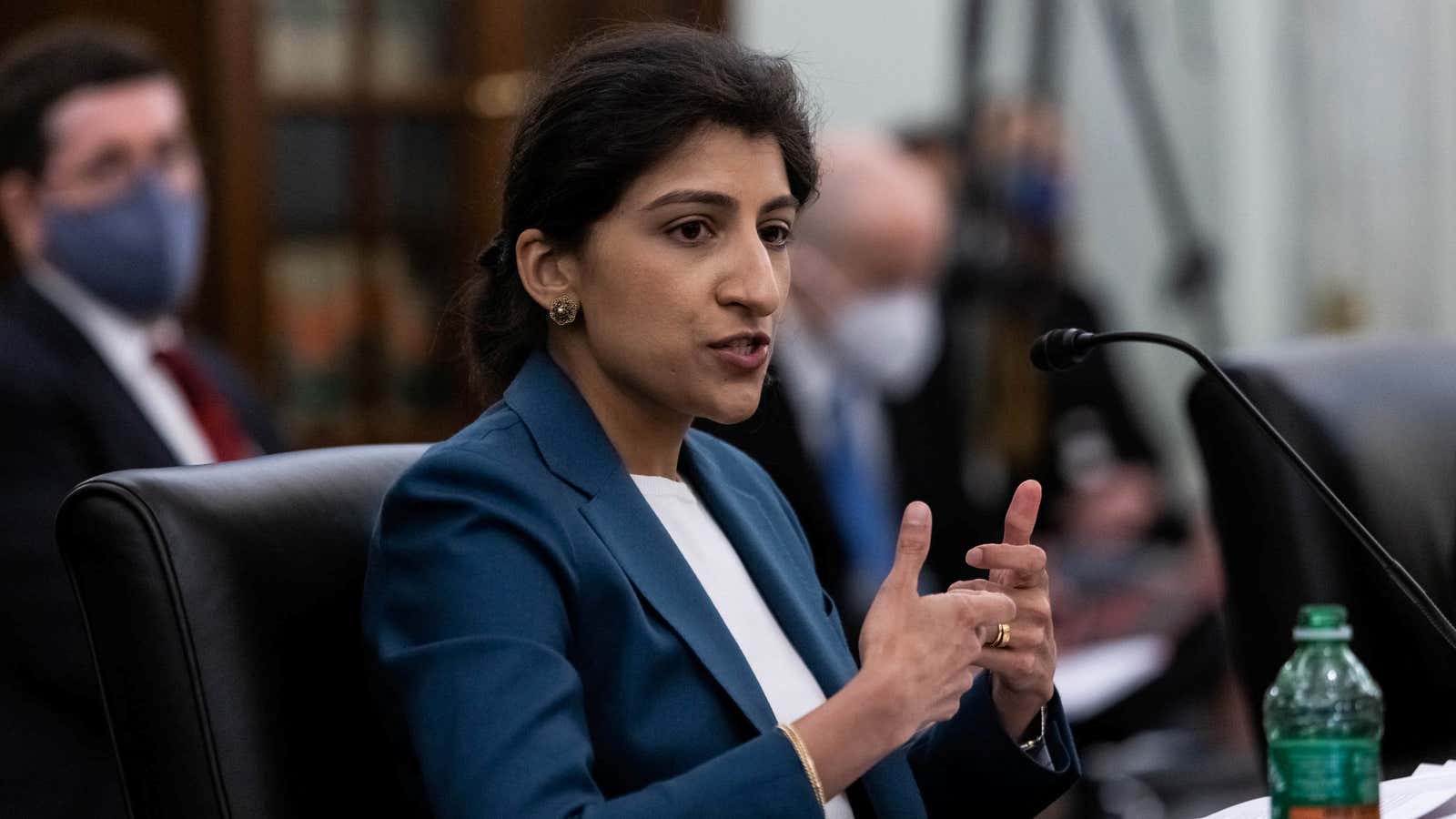Four years ago, Lina Khan was at the leftmost fringe of US antitrust thought. Yesterday (June 15), a bipartisan group of 69 senators—including 21 Republicans—voted to confirm her appointment to the Federal Trade Commission, giving her a pivotal role atop the country’s leading antitrust enforcement agency. Khan’s confirmation signals just how quickly her aggressive anti-monopoly stance has moved from the realm of academic radicals into the mainstream of American politics.
Khan made a name for herself as a law student with an influential 2017 Yale Law Journal article that called for the US to revamp the legal standards that have guided judges in antitrust cases since the 1980s. Rather than focusing narrowly on whether a dominant company is raising prices for consumers, Khan argued courts should consider a broader range of factors to go after businesses that use their market power to squash competition.
The article helped ignite fresh debate over the state of America’s anemic antitrust enforcement and made Khan one of the leading voices in an academic movement seeking to overhaul the country’s monopoly policy. Critics derisively labeled Khan’s school of thought “hipster antitrust,” casting it as a contrarian and unserious viewpoint that could never take hold in the US.
By 2020, Khan was working as counsel for the US House of Representatives antitrust subcommittee and helped shape the group’s report on competition in tech. The House report raised many of the same concerns and suggested many of the same solutions as Khan’s 2017 law journal article. It served as a blueprint for a recently proposed bipartisan package of bills aimed at curbing the power of big tech companies.
Now, Khan will join the five-member board of the FTC, where she will break the tie between the agency’s two Democrat-appointed and two Republican-appointed commissioners. She’ll have a say in deciding which lawsuits the regulatory body brings against alleged monopolists, and whether the FTC will dust off its long-forgotten rule-making power and act on its own authority to outlaw business practices it views as anticompetitive. (Khan and fellow FTC commissioner Rohit Chopra have argued this move is long overdue—even though any new FTC rules would almost certainly get bogged down in legal challenges.)
Khan’s presence on the FTC may or may not transform the agency into a more aggressive regulatory body. There are certainly many obstacles standing in her way—from underfunded investigations to a conservative judiciary that’s not likely to be sympathetic to Khan’s legal philosophy. But the fact that she was confirmed by a commanding 69-28 vote in a deeply divided Senate illustrates a much broader shift in American antitrust thought: The political base of Democrats and Republicans alike are fed up with big tech. Leaders of both parties are eager to arm themselves with more tools to bash the dominant digital firms.
The tech industry is lamenting Khan’s confirmation—but it’s also airing its angst about the fact that the Overton window for what’s acceptable in antitrust doctrine has shifted so dramatically in just four years. “As antitrust populism is inevitably going to become the governmental policy stance on antitrust, American consumers and innovation may soon be collateral damage,” stated the Information Technology & Innovation Fund, an industry group backed by companies including Google, Amazon, Facebook, and Apple.
Khan’s views, once on the fringe, are now a matter of bipartisan consensus. There is no party left that’s willing to defend big tech’s bigness.
